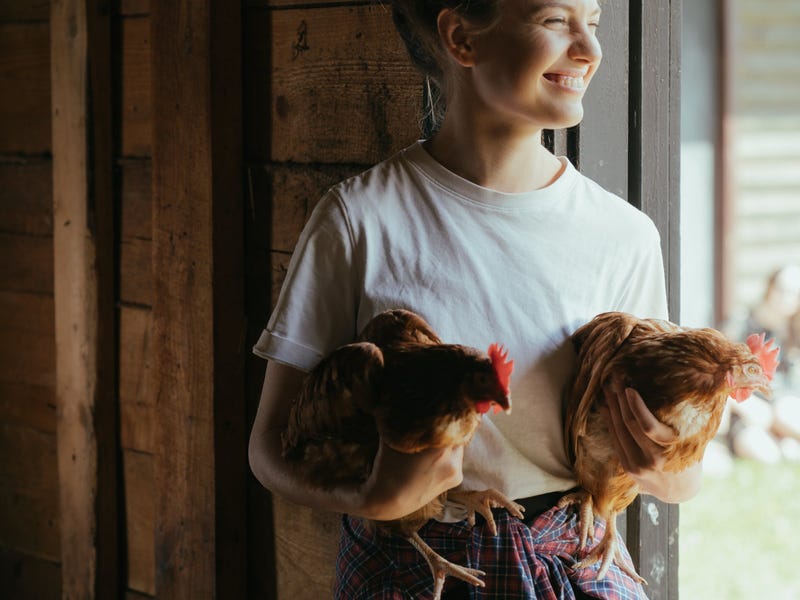Imagine strolling on a bustling market in Provence, the air rich with the scent of lavender and ripe tomatoes, and the lively chatter of locals. Amidst the symphony of French dialogue, there's one phrase that stands out like a trendy beret in a sea of caps: "Ça va."
These two simple words, often translated as "How's it going?" — don’t miss our article on “How are you” in French —, are like a key to French conversation.
In this article, we’ll explore the subtle nuances of Ça va in French. From breezy encounters to genuine concern, "Ça va" is the Swiss Army knife of French communication, versatile and oh-so-charming.
Get ready to discover why this phrase isn't just a greeting—it's a cultural touchstone. Alors, ça va ? Let's find out!

What does "ça va" mean in French
There are many ways to say “How are you” in French. Check out this video of my favorite humorists, Les Inconnus for the posh Parisian style!
Ça va French meaning
At its core, this iconic French phrase translates to "It goes" or "It's going." The word "ça" means "it," and "va" is the third-person singular form of the verb "aller," meaning "to go." Put together, "Ça va" literally expresses the state of something or someone's well-being.
Use of ça va
However, "ça va" isn't just a mundane inquiry into someone's day-to-day existence. Indeed, depending on the tone and context, it can express an array of emotions and feelings.
Primarily, "Ça va" is used as a casual way to ask someone how they're doing or just to catch up.
But it’s also the go-to response when someone asks you how you're doing. Feeling fantastic? "Ça va bien !" Having a rough day? "Ça va pas fort."
Here is the most important thing to remember: "Ça va" is always informal. It's a breezy way to check in without diving too deep into someone’s privacy.
Download your free French essentials eBook
”Ça va” in French - variations and responses
"Ça va" in French is like a chameleon — it adapts to various contexts, expressing a spectrum of emotions and states.
Variations of "Ça va" allow speakers to convey specific feelings or situations succinctly. For instance, "Ça va bien ?" suggests a positive inquiry, while "Ça va mal ?" expresses concern. Responses, too, vary according to the variation used.
These variations and responses create a dynamic exchange, enabling speakers to navigate social interactions. Whether expressing joy, concern, or mere indifference, "Ça va" and its variants enrich French conversation with layers of meaning and emotion.
| Ça va variation | Implication | Typical responses |
| Ça va ? | Standard “What’s up”. | On fait aller. (Literally “we make it go.”) |
| Ça va bien ? | Positive inquiry about well-being. | Oui, ça va bien ! (Yes, I'm doing well!) |
| Ça va mal ? | Concern about well-being. | Non, ça va pas trop. (No, not really.) |
| Ça va comme ci comme ça ? | Indicating an average or so-so state. | Bof, ça va. (Eh, so-so.) |
| Ça (ne) va pas ? | Concern about well-being. | Non, c’est difficile en ce moment (No, it’s difficult lately) |
| Ça va comment ? | Asking how things are going. | Ça va pas terrible. (Eh, not great.) |
| Ça va comme tu veux ? | Asking if things are going the way the person wants. | Oui, on se plaint pas. (Yes, can’t complain) |
| Comment ça va ? | Neutral question. | Ça va très bien, et toi ? (I’m doing great, what about you? |
| Ça va la vie ? | How’s life? | Oui, ça va super bien ! (Yes, it’s going fantastic!) |
| Ça va aller ? | Asking if it’s going to be alright or if someone is going to be fine, usually after a negative experience/event. | Oui, ça ira.(Yes, it will be OK) |
| Ça va la famille ? | Inquiry about someone’s family. | Oui, tout le monde va bien. (Yes, everyone is doing well.) — More family vocab in French here. |
| Ça va le boulot ? | Inquiry about someone’s job. | Oui, super, j’ai eu une promotion ! (Yes, awesome, I got promoted!) — More business French here. |
| Ça va le faire ? | Asking if it’s going to work out. | Oui, ça ira. (Yes, it will work out.) |
How to use "ça va" in different contexts
As mentioned, "ça va" is an incredibly versatile phrase in French, capable of conveying a wide range of meanings depending on the context, tone, and accompanying gestures.
For example, as a friendly greeting, "Ça va?" with a smile asks, "How are you?"
Below is a table to help you navigate the French maze of “ça va”, and sound like a native — or almost!
| Context | Use of “ça va” | Meaning or implication |
| Friendly greeting | Ça va ? | How are you? |
| Reassurance | Ça va. | It’s okay. / It’s going to be okay. |
| Approval | Ça va ! | It’s good! / That’s fine! — used especially in Belgium |
| Checking in | Ça va ? | Are you okay? / How’s it going? |
| Sarcasm | Ah, ça va. | Yeah, right. / Whatever. |
| Confusion | Ça va ? | Are you serious? / Really? |
| Indifference | Ça va. | It’s whatever. / It’s fine (indifferently). |
| Encouragement | Ça va aller. | It will be okay. / You can do it. |
| Criticism | Ça va pas ! | That’s not okay! / This isn’t going well! / Are you insane? |
| Surprise | Ça va ? | Are you kidding? / What’s going on? |
| Disbelief | Ça va pas la tête ? | Are you insane? |
Cultural significance of “ça va” in French social interactions
While the literal translation of “ça va” is "it goes," its practical usage extends far beyond this simplistic interpretation. Understanding the cultural significance of "ça va" requires a deeper look at how it functions in various contexts and regions.

Everyday social interactions
In France and many other French-speaking countries, "ça va" operates as a casual greeting and a form of small talk. Its versatility is one of its key features:
Greeting
"Ça va?" is often used as a stand-in for "How are you?" It is common to hear this phrase exchanged multiple times a day between friends, family, colleagues, and even acquaintances.
Response
The typical response, "Ça va," can mean "I'm fine" or "It's going well." This brevity keeps the exchange light and non-intrusive, which suits the fast-paced nature of daily interactions. You know French people and their legendary friendliness… — note the sarcasm. Don’t worry, it’s not THAT bad!
If you’d like to know more about the fascinating French culture, don’t miss this article!
Checking in
Beyond its role as a greeting, "ça va?" is also used to check in on someone's well-being. This usage demonstrates a level of concern and connection, though the speaker will often still expect a brief response unless further elaboration is invited.
Cultural nuances
The phrase "ça va" encapsulates several cultural nuances.
Politeness and formality
In more formal settings or when speaking to someone with whom one is not well-acquainted, adding a formal salutation like "Bonjour" or "Bonsoir" before "ça va?" can make the interaction more appropriate. Check this article to learn greetings in French!
Tone and context
As seen previously, the meaning and reception of "ça va" can change significantly with tone and context. A cheerful "Ça va?" versus a concerned "Ça va?" signals different levels of interest and engagement.
Regional variations
While "ça va" is used widely across French-speaking regions, there are some variations in its use and reception.
France
In France, "ça va" is incredibly common and used in a variety of contexts. The French might also add a question tag like "et toi ?" (and you?) to keep the conversation reciprocal. In more formal or polite interactions, it is often paired with "Comment allez-vous ?"
Belgium
Our neighbors in Belgium use “ça va” it to express satisfaction, kind of the equivalent of “OK”. For example:
- Tu veux aller au ciné ? (Do you want to go to the movies?)
- Ça va. (Sure.) — note the enthusiasm…
Québec (Canada)
In Quebec, "ça va" is used similarly to how it is in France, though the overall conversational style in Quebec might be slightly more relaxed and informal. Phrases like "Comment ça va?" (How is it going?) are prevalent, and you might hear "Ça va bien ?" more frequently, emphasizing the positive — American style!
Discover other differences between French and Canadian French here.
French-speaking Africa
In many African countries where French is spoken, such as Sénégal and Côte d'Ivoire, "ça va" is also prevalent but often accompanied by additional inquiries about family and personal life, reflecting the communal and relational emphasis in these cultures.
Fun facts and misuses
The deceptive simplicity of “ça va” in French can lead to misunderstandings and faux pas for non-native speakers. Keep reading to avoid them! And if you do make a faux pas, ce n’est pas la fin du monde ! Just laugh about it, and you might end up making some new friends!
Common misunderstandings by non-native speakers
Literal translation
Non-native speakers often mistakenly translate "ça va" literally as "it goes," which doesn't convey its actual use as a casual greeting or inquiry about well-being. This literal translation misses the nuanced social function of the phrase.
Formality confusion
Some non-native speakers may use "ça va" in very formal contexts where a more polite form like "Comment allez-vous ?" would be appropriate. This can lead to unintentional breaches of French etiquette, especially in professional or formal settings.
Over-elaboration
This goes especially for our dear over-sharing Americans — just joking! When asked "ça va ?", non-native speakers might provide a detailed response about their day or feelings, whereas a simple "ça va" or "ça va bien" is usually expected.
This can make the exchange awkward and overly lengthy for native speakers, especially if they don’t know the person well.
Neglecting reciprocity
Non-native speakers might not always follow up with "et toi ?" or "et vous ?" (and you?), which is a common courtesy in reciprocal conversation, thus potentially seeming disinterested or impolite.
While some French people don’t even answer the question: “ça va”, I would advise you to always answer briefly and ask the same question back.
Quotes from popular French movies and songs
"Ça va" frequently appears in French popular culture, showcasing its widespread use in daily interactions.
Movies

- "La Haine" - In this critically acclaimed film, characters often greet each other with "ça va ?" to establish a casual, relatable atmosphere. For instance, Vinz and Hubert greet each other with a quick "ça va ?" demonstrating their camaraderie amidst the film's tense narrative.Vinz: "Ça va ?" Hubert: "Ça va. Et toi ?"
- "Amélie" - In this whimsical, irresistible movie, Amélie uses "ça va?" in her interactions with others in her Parisian neighborhood, reflecting the everyday nature of the phrase.Amélie: "Bonjour, ça va ?" Lucien: "Ça va, merci."
- “Le Dîner de Cons" - This is a hilarious, cult French comedy directed by Francis Veber, and based on a play. The title translates to "The Dinner Game" in English.
François: "Ah ça va, hein ? Ça va, toi ?"
Songs
- Ça va pas changer le monde by Joe Dassin - This song reflects on the idea that one's actions might not change the world, but they can still make a difference.
- Ça va ça vient by Vitaa & Slimane - This song describes the ups and downs of life, with the title translating to "it's okay, it comes and goes." — For the little anecdote, Slimane represented France at the Eurovision Song Contest 2024.
- Ça va ça va by Claude Capéo - Also about the ups and downs of life, this song has an optimistic message: things are ok as long as we’re alive.
- Ça va by Émile Bilodeau - A moving song about life and death by a Québécois singer and songwriter.
Ça va ? Are you still there? Merci beaucoup for reading this article!
By now, you’ve probably mastered all — or almost all — the nuances of this essential expression!
"Ça va" isn't just a phrase; it's your passport to sounding effortlessly cool and fitting right in with the French vibe. Whether you’re strolling through cobblestone streets in Lyon or hanging out with French-speaking friends, dropping a well-timed "ça va" instantly amps up your conversational game.
And if you’re in love with “ça va” in French, you can use it endlessly!




